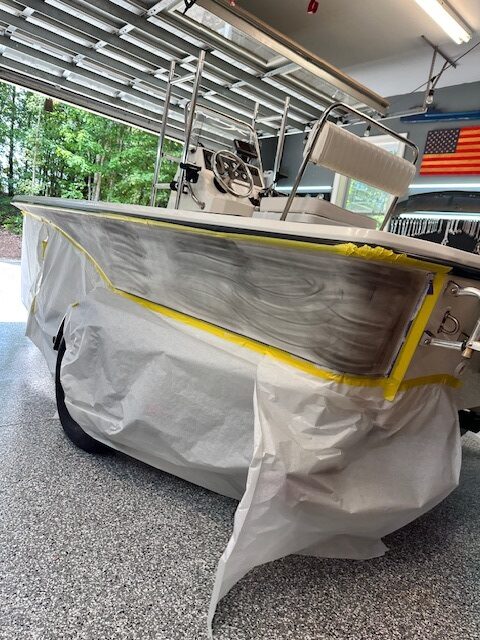Boat Winterization Service is an essential part of boat maintenance that prepares your boat for the colder months. Proper winterization helps prevent damage caused by freezing temperatures, moisture buildup, and inactivity during the off-season. In Raleigh, North Carolina, with boating season peaking in warmer months, winterization is a key service for boat owners who store their vessels during the cooler weather, ensuring they’re ready to go when spring rolls around.

Boat winterization involves a series of procedures designed to protect a boat’s engine, systems, and hull during periods of non-use, particularly when the boat is stored outdoors or in a marina where cold weather could lead to freezing, rust, corrosion, or other damage. This process typically happens once the boating season ends, usually in late fall or early winter.
The most critical part of winterizing a boat is protecting the engine from freezing temperatures and moisture damage. Here are the typical steps involved in engine winterization:
For boats with raw water cooling systems, ensuring that all water is drained and antifreeze is introduced is crucial to prevent freezing and damage.
Water systems aboard the boat (freshwater systems, waste systems, etc.) can be particularly vulnerable during the winter months, as frozen pipes can burst and cause costly damage.
The boat’s hull and exterior need special attention to protect them from the harsh conditions of winter weather, including moisture, freezing temperatures, and UV damage.
Winterizing the interior of the boat ensures that the cabin, upholstery, and electronics are protected during the months of non-use.
For boat owners who store their boats on trailers during the off-season, it’s important to winterize the trailer as well.
If the boat is being stored outside or in an uncovered area, we provide recommendations for proper winter storage.
Boat winterization is critical to preserving the performance, appearance, and value of your boat during the colder months. Whether you are located in Raleigh, NC, near Jordan Lake, Falls Lake, or along the North Carolina coast, ensuring that your boat is properly winterized will protect it from freezing, corrosion, and general wear and tear. Our boat winterization services provide comprehensive care for all aspects of your boat—engine, plumbing, exterior, interior, and trailer—ensuring it’s ready for the water when spring arrives.
© 2025 All Rights Reserved.
Serving Raleigh | Serving Wake Forest | Serving Durham | Serving Kerr Lake | Serving Lake Gaston
Boat detailing and maintenance in Raleigh, NC | Boat winterization in the Raleigh area | Gelcoat restoration in Wake Forest NC | Boat maintenance Kerr Lake NC | Boat repair Wake Forest